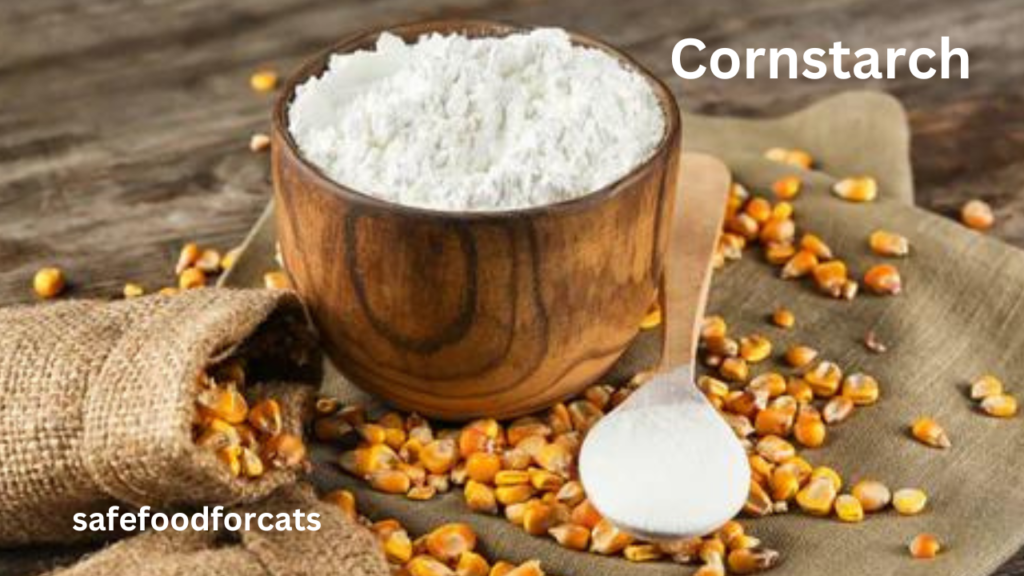Unveiling the Potential Benefits and Risks
Cornstarch, a kitchen staple often used for its thickening properties, has found its way into discussions about its safety for our feline friends. As responsible cat owners, it’s essential to understand whether cornstarch is a safe addition to our cats’ lives. Let’s explore the potential benefits and risks of cornstarch for cats.
Understanding Starch and Cat Digestion
Starch, a carbohydrate prevalent in many plant-based foods like corn, is primarily used as an energy source by humans and some animals. However, it’s important to note that cats possess a distinct digestive system. Cats are carnivores meaning that their bodies function to process animal-based protein and fat as their primary sources of nutrition. Their digestive systems are tailored to efficiently break down and utilize nutrients from animal tissues.
Unlike humans and certain omnivorous animals, cats lack specific digestive enzymes needed for the efficient breakdown of carbohydrates, including starch. This raises the question: if cats aren’t naturally adapted to digest starch, is cornstarch safe for them?
Cornstarch for Fur Management
One practical application of cornstarch for cats is in our management. Long-haired breeds, such as Ragdolls or Persians, are particularly prone to developing mats and tangles in their fur. These mats can be not only uncomfortable but also painful for cats. Some cat owners have experimented with applying a small amount of cornstarch to tangled areas to aid in detangling. The fine texture of cornstarch can help create a buffer between the tangled fur, facilitating gentler combing. However, ensuring that your cat doesn’t ingest excessive amounts of cornstarch during grooming is vital.
Exploring Cornstarch for Flea Control
Another potential application of cornstarch for cats is as a natural flea control method. The theory is that the powdery texture of cornstarch can smother and dehydrate fleas, potentially reducing their numbers on a cat. While this concept is intriguing, it’s essential to approach it with caution. Scientific evidence supporting cornstarch’s efficacy for cats flea control is limited. Flea infestations can pose significant health risks to cats, so if you’re grappling with fleas, it is always advised to consult a veterinary doctor on safe and effective flea control strategies.
Cornstarch for Soothing Skin Irritation
Cornstarch is recognized for its absorbent properties, making it a useful tool for managing specific cat skin issues. Applying a modest amount of cornstarch to areas where your cat experiences discomfort or itching could offer relief. The powder can absorb excess moisture, creating a drier environment on the skin. However, monitoring your cat for any signs of adverse reactions is crucial, and discontinue use if you observe any negative effects on their skin or overall well-being.

Incorporating Cornstarch into Cat Food
The concept of adding cornstarch to a cat’s diet raises significant considerations. While cats thrive on animal-based protein, certain commercial cat foods might contain minor amounts of starch as fillers or binders. Nevertheless, prioritizing high-quality protein sources that align with a cat’s natural nutritional needs is crucial. If you’re considering incorporating cornstarch into your cat’s food, it’s recommended to consult your veterinarian first. They can offer insights into appropriate portions and whether it suits your cat’s dietary requirements.
Adverse Reactions and Allergies
Just like humans, cats can have individual reactions to substances. While some cats might tolerate cornstarch well, others could experience adverse reactions. Common symptoms of intolerance or allergies include nausea, vomiting, diarrhea, constipation, increased blood sugar levels, excessive drooling, gas, and loss of appetite. Suppose you observe these signs after introducing cornstarch to your cat’s routine. In that case, it’s crucial to discontinue use and seek advice from your veterinarian.
Consulting a Professional: The Prudent Approach
When contemplating cornstarch or any new ingredient for your cat, consulting a veterinary professional is paramount. Veterinarians possess the expertise to comprehend cats’ unique dietary and health needs. They can provide recommendations based on your cat’s requirements, health history, and potential interactions with existing health conditions or medications.
In Conclusion: A Balancing Act
Cornstarch can offer various potential benefits for cats, from fur management to potential skin relief. However, its usage should be approached with caution and careful consideration of your cat’s individual needs and sensitivities. While certain cats might benefit from limited and controlled exposure to cornstarch, others might encounter adverse reactions. Striking a balance between potential benefits and your cat’s well-being is paramount. Always prioritize your cat’s health and consult your veterinarian before introducing any new ingredients into their routine. Your veterinarian’s insights will guide you in making well-informed decisions for your beloved feline companion.

